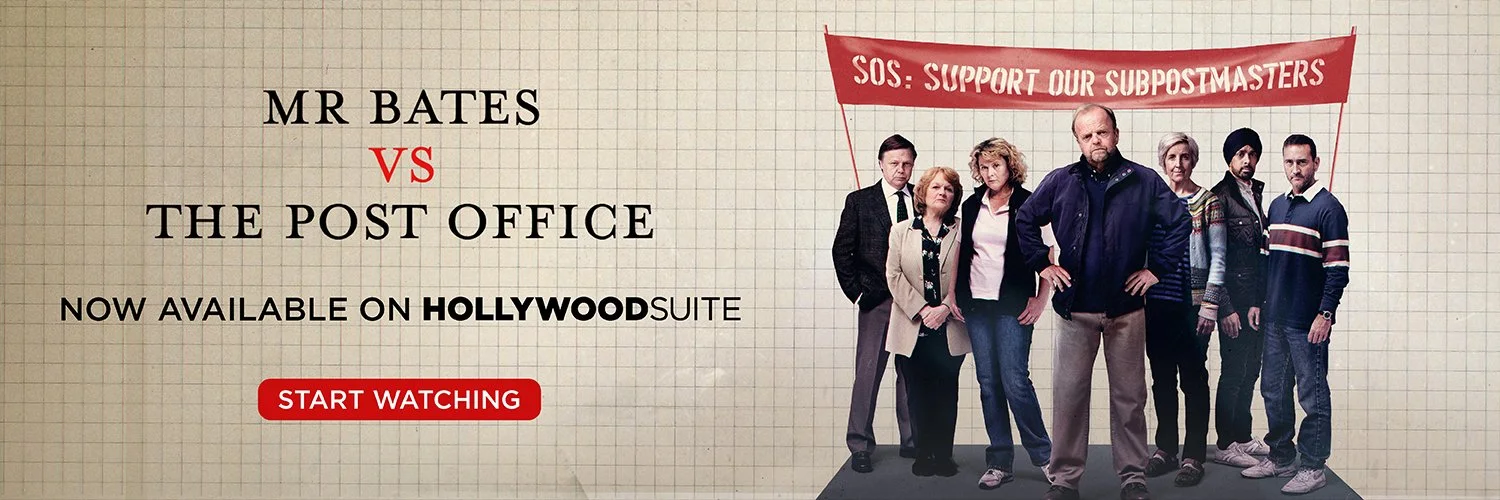Green Border: Agnieszka Holland’s Refugee Tale Targets Poland's Cruel 'Exclusion Zone'
By Liam Lacey
Rating: A
Can contemporary Europe survive its current political turmoil with any humanity left? That’s the biting question at the heart of veteran Polish director, Agnieszka Holland’s multi-strand new film, Green Border.
The film dramatizes the ongoing refugee crisis against the background of the conflict between Russia and the European Union.
Shot in black and white, with scenes of razor-wire barriers and terrified families hiding in the forest, Green Border evokes images of the Second World War and the Holocaust, the subject of Holland’s films Europa Europa (1990) and In Darkness (2011). The 75-year-old filmmaker’s wildly varied career also includes Mr. Jones(2019), about Stalin’s imposed famine on Ukraine in the 1930s, as well as Hollywood features (he Secret Garden) and episodic television (The Wire, House of Cards Treme).
Green Border, which Holland directed in collaboration with Kamila Tarabura and Katarzyna Warzecha, jumps about, in separate titled chapters between scenes of migrants, border guards and humanitarian activists, in the mosaic style of documentary news.
We begin in Oct. 2021, with a Syrian family on a Turkish passenger plane, seeking a safe life in Sweden. The mother Amina (Dalia Naous) declares that this path is a gift from God, compared to the perils of entering the European Union by sea. She travels with her father-in-law (Al Rashi Mohamad), her husband Bashir (Jalal Altawil), two pre-adolescent children, Nur and Ghania, and a nursing baby.
At a window seat next to them is a middle-aged woman, Leila (Behi Djanati Atai) from Afghanistan. They communicate in halting English and soon find themselves sharing a van to the border, paid for by Basheer’s brother in Sweden.
There, their dreams come crashing down. After a series of shakedowns by Belarusian border guards, midst the sounds of gunfire, they find themselves pushed through a hole in a razor wire fence at night. On the other side, Polish soldiers drive them back again.
The year is 2021, when Belarusian dictator and Putin ally, Alexander Lukashenko - in retaliation against European Union sanctions following his disputed 2020 election - orchestrated a migrant crisis. This involved promises to thousands of refugees from Syria, Afghanistan, Iraq, Yemen and The Democratic Republic of the Congo, that they could fly to Minsk, and then find their way to the border and passage to the Europe.
Instead, migrants were stranded on the border of Poland, Latvia and Lithuania. The Polish government, under the right-wing, nationalist Law and Justice party (PiS), sent thousands of troops to the border, creating a razor-wired “exclusion zone” which barred press, EU inspectors and aid workers. There, they physically pushed refugees back across the border.
In a series of scenes in the exclusion zone, the Syrian family and their Afghan friend are cursed, beaten and driven back by border guards on both sides. In one scene, a Polish commander offers a “morale” address, in which he tells troops that the migrants aren’t real people, or real parents, but crisis actors, human “bullets” fired by Putin and Lukashenko in their war against the European Union, sent to “play on our Polish compassion.”
The government’s claims are treated skeptically by everyday civilians who have watched videos of pregnant women shoved by Polish guards into razor-wired fences. One pregnant Polish woman, lining up at the supermarket, defends her doting husband’s work as a border guard to her neighbours. But she changes her mind when she sees cellphone video footage that shows him engaged in the same brutality.
Also on the Polish side are some courageously compassionate figures who, provide a glimpse of hopeful promise in Green Border. They include Julia (Maja Ostaszewska), a widowed therapist who lives near the border, and, after hearing voices crying for help in the swamp near her house, decides to become an activist. (The political tensions are also spilling over into her work: One of her remote patients is a man who is going into a manic spiral about Poland’s increasingly “fascist” government.)
Julia opens up her home to a group of young activists, led by two sisters, Marta (Monika Frajczyk) and Zuku (Jasmina Polak), who lead a band of activists, including doctors and lawyers, who slip into the exclusion zone at night, bringing food, water, bandages, and cellphone powerbanks to the migrants.
Green Border was released in Poland after winning a special jury prize at the 2023 Venice Film Festival, shortly before the national election that threw the right-wing PiS government out of office in favour of its current centrist government. It was a box office hit, but also a subject of controversy, attacked by politicians who compared Holland to Stalin and Joseph Goebbels (she sued for defamation), and attacked the film in campaign ads as anti-Polish propaganda.
The coda to the film takes place on Feb. 26, 2022, two days after Russia’s invasion of Ukraine, as Poland opens its doors to the first of two million Ukrainian refugees.
It was an act that both showed evidence of Polish empathy, while pointing to the selective dehumanization of those who weren’t fortunate enough to be close neighbours. The final credits note that people are still dying in the exclusion zone.
Green Border: Directed by Agnieszka Holland, with Kamila Tarabura and Katarzyna Warzecha. Written by Maciej Pisuk, Garbriela Larzarkiewicz-Sieczko and Agnieszka Holland. Starring: Jalal Altawil, Maja Ostaszewska, Tomasz Wlosok, Behi Djanati Atai, Mohmad Al Rashi and Dalia Naous. Green Border opens at the TIFF Lightbox on June 28.



